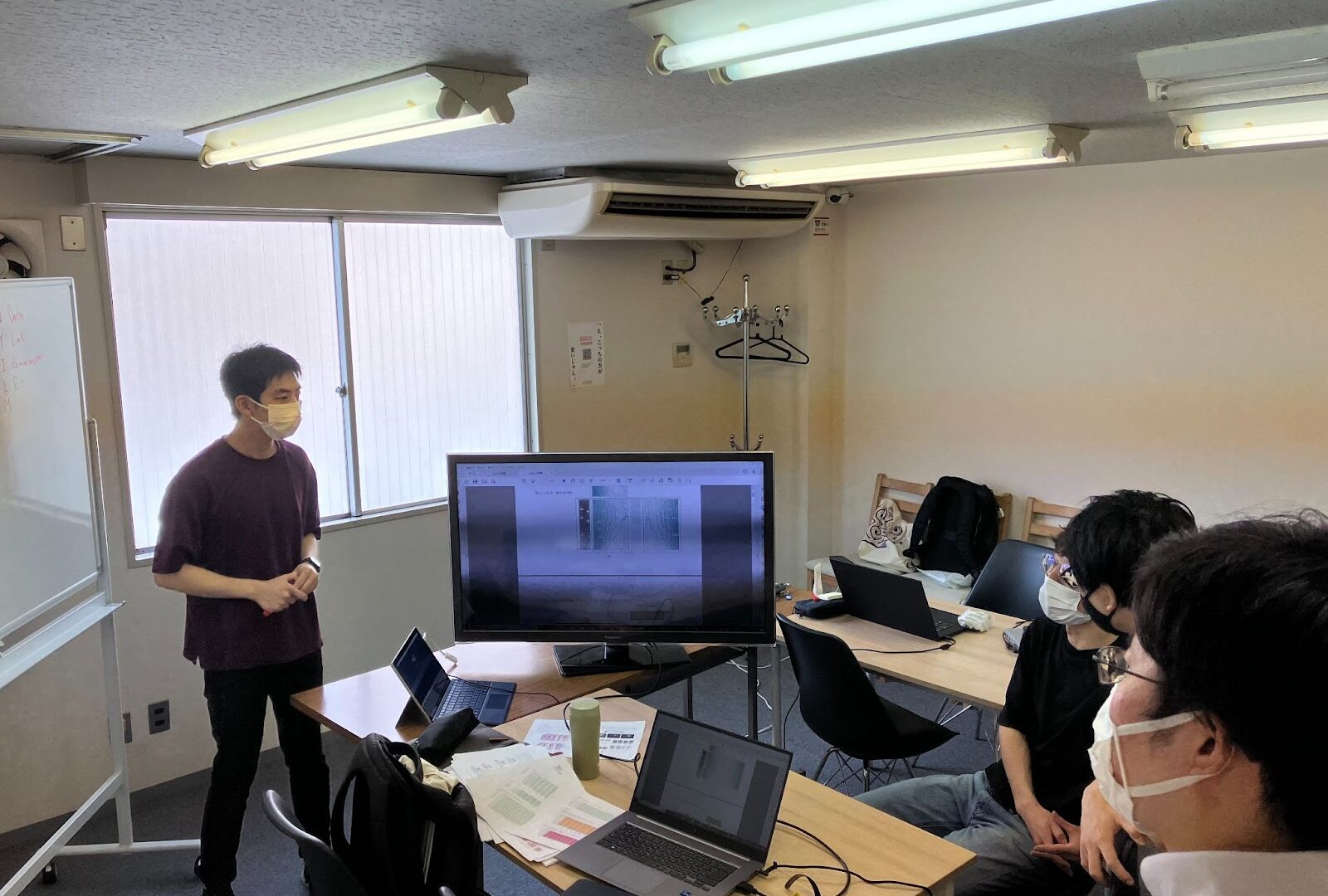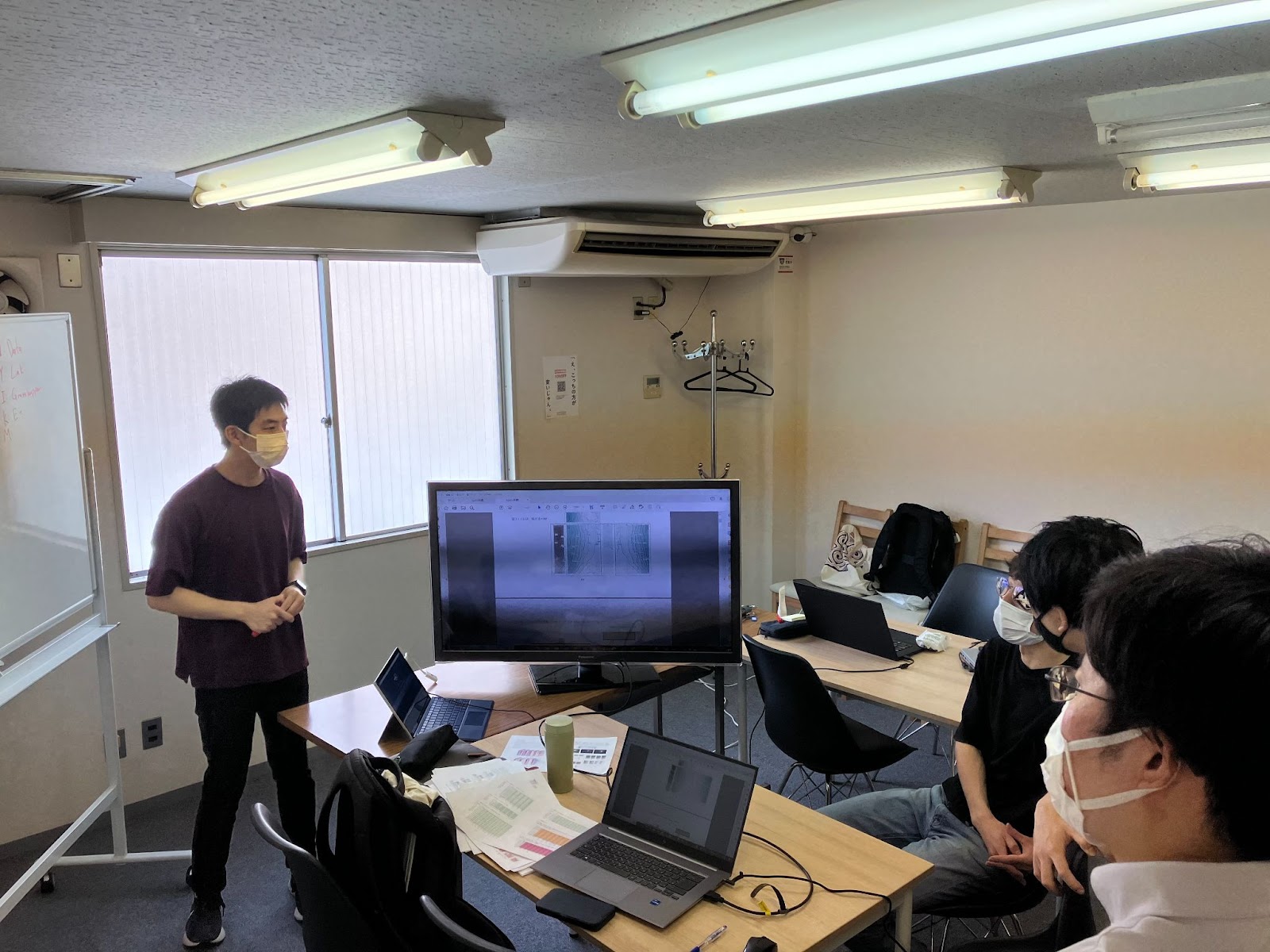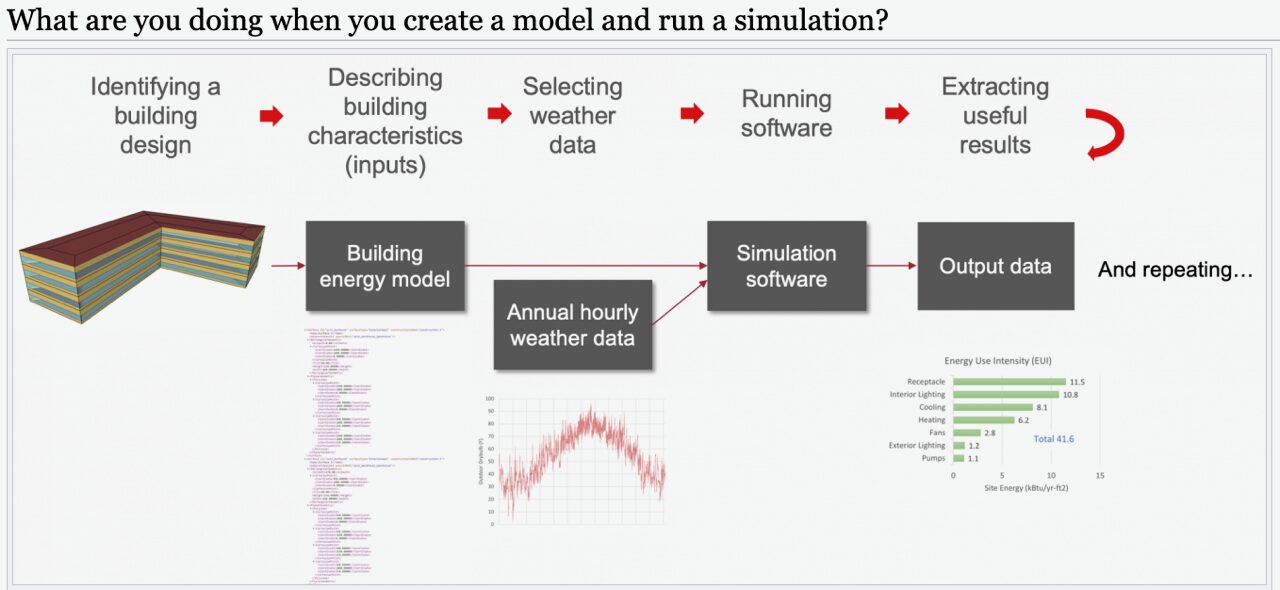I'm interested in participating in an IBPSA hackathon; what should I know beforehand?
-Hack-Curious
Dear Hack-Curious,
You are interested in participating in a hackathon? Congratulations! You are ready to become a vital team member for whatever project you are going to be a part of!
Or maybe you are still on the fence? Then let me answer some questions you may have before deciding.
What is a hackathon and why is IBPSA hosting it?
Hackathon is a portmanteau of “hack”, as in an “inelegant but effective solution to a specific problem,” as in “life hack” and “marathon.” Hackathons are collaborative events where participants create projects based on a specific theme in a short time frame, typically within 24-48 hours. It was originally popular within the tech industry to develop useful software tools or creative solutions. However, it has expanded into brainstorming solutions for a cause or having a theme within a specific domain.
IBPSA-USA’s hackathon (HackSimBuild) focuses on building performance simulation, unlike the AEC hackathon and CORE Studio’s AECTech, which cover a wider range of Architecture Engineering and Construction (AEC) topics. Building performance simulation is a relatively new field within AEC. Its rapid evolution has made it an integral part of the sustainable building design process - an ideal fit for the fast, innovative solutions that hackathons develop.
HackSimBuild’s goal is to foster networking and development of creative solutions to relevant problems in building performance simulation, and the first hackathon’s theme was kept broad to allow for more flexibility as long as it pertained to building performance simulation. Future HackSimBuilds may have a prompt or a theme like Project Stasio’s competitions.Who should join the hackathon?
Anyone with an interest in meeting people in the industry and learning new skills should consider joining the hackathon. Practitioners, researchers, and students from all different backgrounds joined the previous HackSimBuild. Check out the past participants and their projects here.
The main draw for many is the chance to meet mentors who are industry leading professionals or software developers that attend the event to share their deep knowledge in the field to assist in attendees’ projects. You can check out the mentors that attended the previous hackathon here.
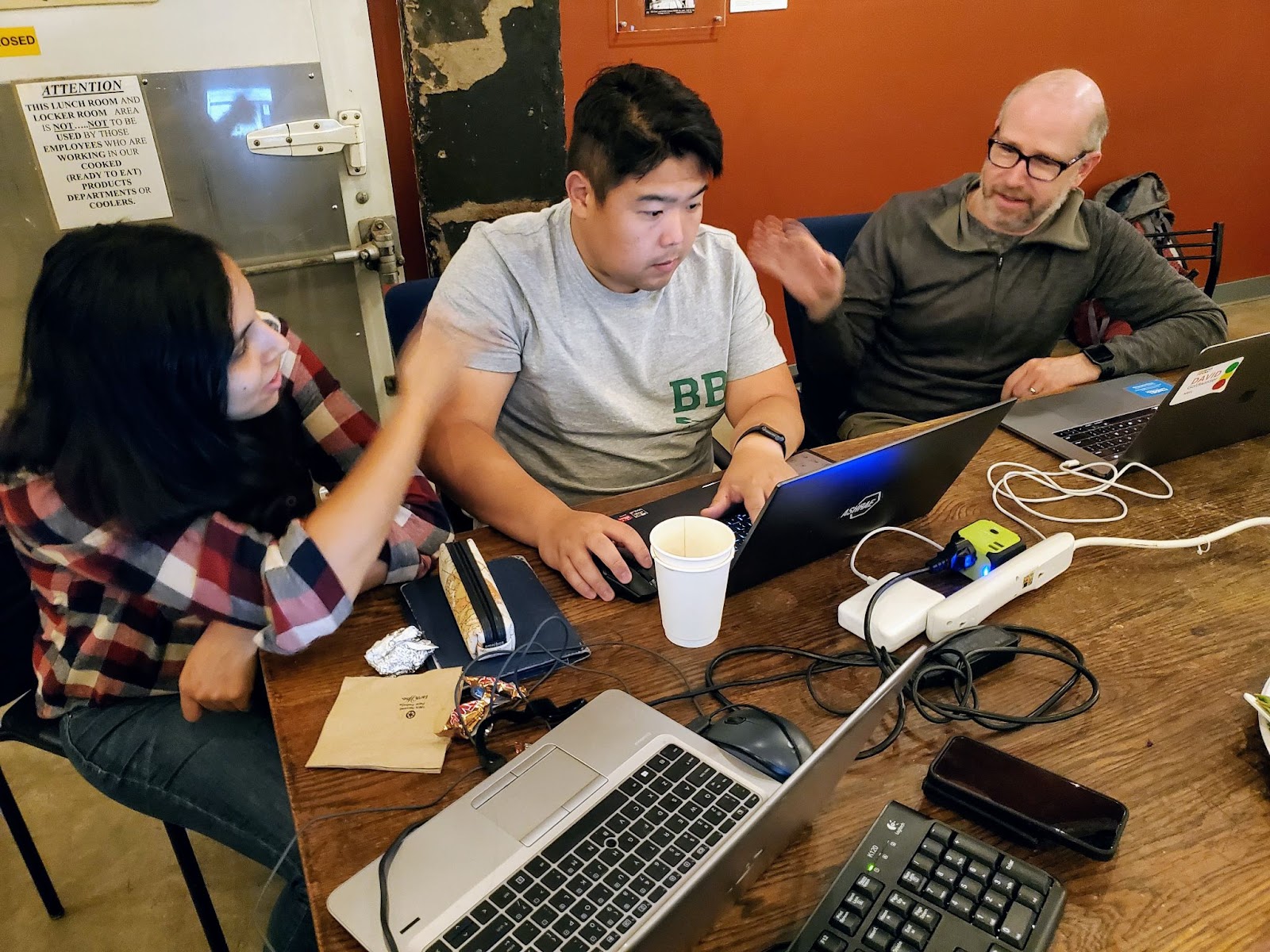
What should be prepared before the day of the hackathon?
To prepare for the hackathon, think of a few project ideas. Take inspiration from your day-to-day operation, and think about what you wish existed in the industry. Rough ideas are fine - you don’t need fully planned projects. During the brainstorming session at the start of the hackathon, you’ll work with others to synthesize and evolve ideas into a full project plan.
Here are a few suggestions to get you thinking:
- Automating tedious and repetitive tasks
- Integrating multiple software for new simulation possibilities
- Explaining building science concepts to clients
- Creative ways to present/visualize simulation results
- New performance metrics to compare design ideas
One thing to be mindful of is the scope of your project. You have roughly 24 hours to create your project, including time to eat and sleep. That’s not enough time to revolutionize how we run building simulations or create a competitor to existing software tools, but it is enough time to address key issues. Successful hackathon projects I worked on were focused on solving a specific problem we encountered frequently.
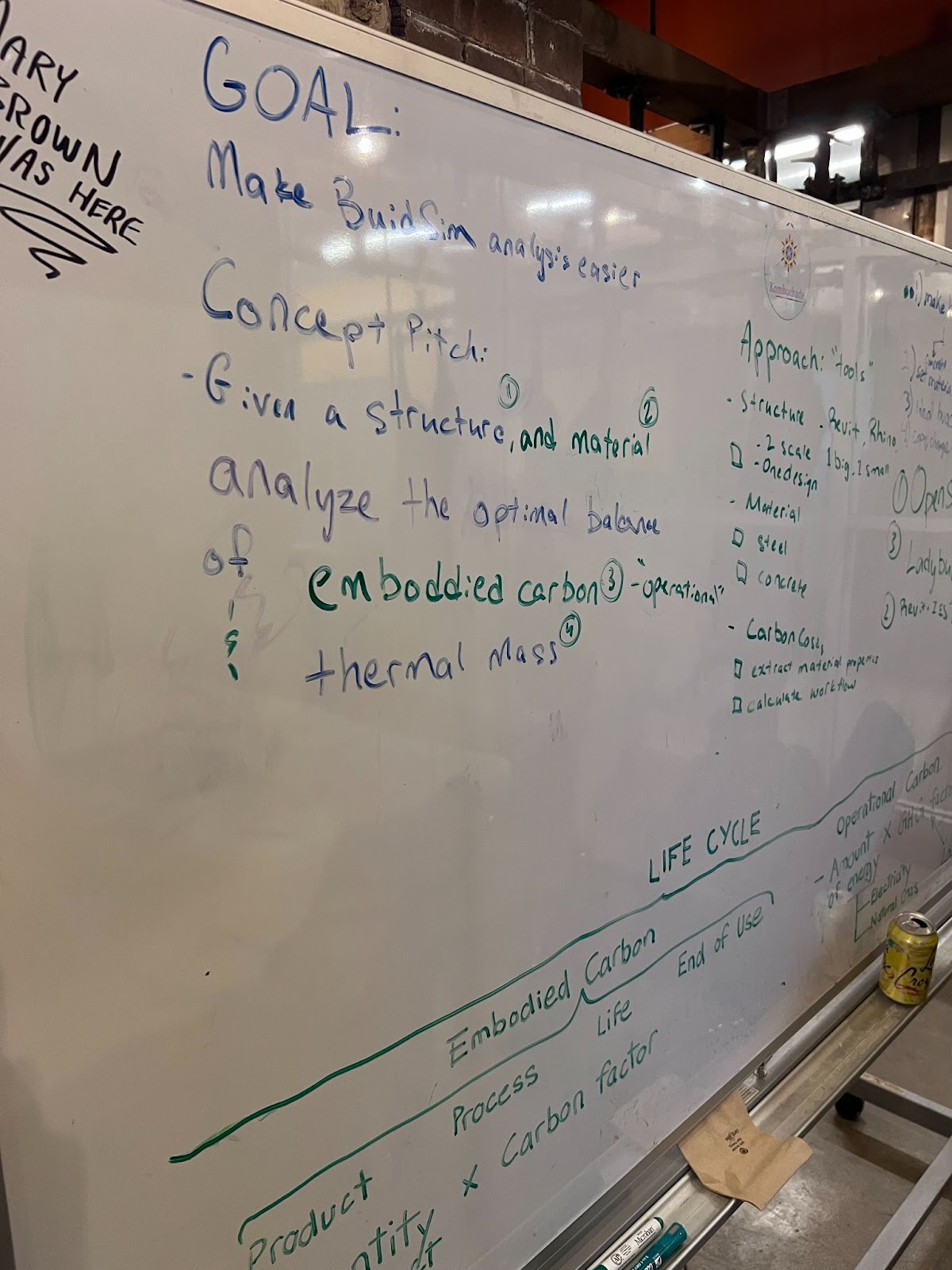
Besides coming up with some ideas, be sure to plan for some sleep! Typical hackathons have a reputation to stay up all night fueled by caffeine and motivation, but it is highly recommended to take a break. Hackers at the previous hackathon reported getting at least 4 hours of sleep. Most went back home or to their hotels but a few decided to spend the night at the venue. Food and drinks (most importantly caffeine) during the event will be provided.


Can I still join if I don’t know any programming?
Most definitely! This might be the biggest barrier for most people when considering whether or not to attend a hackathon, so I’ll share my personal experience.
My first foray into programming was at the first hackathon I attended. Our project was to create an array of temperature sensors to validate CFD results. I was in charge of taking the sensor data and outputting a CSV file using Python. This should be a relatively simple task for anyone familiar with programming, but at the time, it took me the 24-hour competition to complete. Even though it took me a long time to complete my task with extensive help from the mentors, I was still able to be a productive member of the team. This experience became the starting point for me to incorporate programming into my work and today, I use it extensively in my research.
Based on the projects from the previous HackSimBuild, most teams utilized programming to automate certain processes, but only a few projects required extensive programming knowledge. Most of the time, programming was just one of the tools used. We even had projects that presented ways to communicate building science to clients or new concepts to revolutionize how we run conferences, which required zero programming. Having a couple of people on your team that already know or are willing to learn programming should be sufficient for most projects.
That said, knowing a little programming will not hurt! If you need a recommendation, the most popular language at the past hackathon was Python, since it is easy to learn but versatile, and can be integrated with many software programs. Just knowing what programming languages exist and their uses can help you seek out the right mentors for questions at the hackathon.
What should I expect to get out of a hackathon?
Based on the post-hackathon survey, the biggest takeaway for most participants attending HackSimBuild was the opportunity to network with professionals and students and learn new skills from each other. Unlike other types of networking events, hackathons are a place to exhibit problem-solving and technical skills. It’s a great chance for people with different backgrounds to meet and learn from each other over an intense, long weekend. In addition, practitioners learn about the latest features from researchers and software developers, researchers learn about real issues practitioners face, and students meet potential future employers.
For me, the people I had the chance to meet and the skills I have learned at each hackathon have been irreplaceable and even career-changing, which is the main reason that keeps me coming back to a weekend of straight work and lack of sleep.
Hopefully, this gives you enough to think about. I look forward to seeing you at future hackathons!
If you’re interested in getting involved in planning next year’s hackathon, you can sign up here.
Ken Takahashi, PE, LEED AP BD+C
Ph.D. Candidate, University of Tokyo
